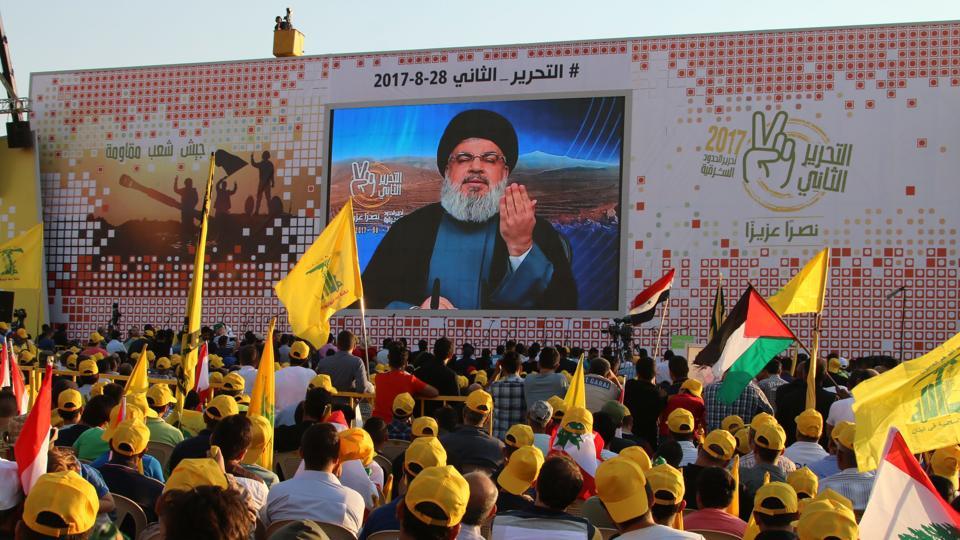Last week the Shia Lebanese movement Hezbollah struck a deal with the Islamic State to transfer more than 300 ISIS fighters and more than 300 family members from southwestern Syria, along the Lebanese border, to Deir ez-Zor Province in the east of the country near the Iraqi frontier.
The deal came following a week-long offensive by Lebanese army and Hezbollah on both sides of the border. As part of the ceasefire, the Islamic State revealed the location of bodies of Lebanese troops who had been abducted in 2014, as well as the remains of an Iranian soldiers, and released captured Hezbollah personnel. at Arsal, near the border region with Syria, before reaching a cease-fire last Sunday.
Hezbollah’s Secretary-General, Hassan Nasrallah, defended the deal in a TV interview with the organization’s al-Manar on August 28. He said that, although ISIS’s military defeat was very likely, Hezbollah would not have known the fate of the Lebanese soldiers kidnapped three years ago. Only a deal could ensure closure.
The deal and Nasrallah’s justification has stirred controversy among Iraqi officials. Prime Minister Haider al-Abadi quickly announced that the transfer of the ISIS fighters was unacceptable and “offensive to Iraqis”. In a speech on Tuesday, he added, “We fight the terrorists in Iraq….We do not send them to Syria — we kill them in Iraq.”
The intended destination of the fighters and their relatives — the convoy has been held up for almost a week after US warplances cratered roads — is al-Bukamal on the the Iraqi border. The town is close to al-Qaim, a central ISIS location, on the Iraqi side in western Anbar Province. Indeed, for ISIS, there is no separation both al-Qaim and al-Bukamal are part of the al-Furat (Euphrates) wilayat. Militarily, al-Bukamal and Deir ez-Zor are zones of movement and reinforcement for the Islamic State.
Hezbollah’s transfer of the more than 300 “terrorists” has ensured their safe passage to Iraqi land and accommodation in al-Qaim, host to ISIS’s top commanders and military factories where assaults are planned and launched, from where in the past six months the Islamic State has carried out operations inflicting heavy causalties among Iraqi troops.
Still, for Iranian-aligned politicians, the deal did not present a problem. Instead, that problem is the US airstrikes that blocked the convoy. Both Hezbollah and the Iranian Foreign Minister, Mohammad Javad Zarif — who supposedly see the Islamic State as a terrorist menace to the Middle East — have condemned the strikes, diverting from the fighters to accuse the US of inflicting suffering on women and children.
That condemnation does not sit well with many Iraqis. Claims are circulating that, despite the American intervention, some buses have made their way inside Iraq, reaching Rawa and Ana in western Anbar and thus bolstering ISIS resistance. On social media, Iraqi people expressed anger through harsh criticism, accusations, sarcasm, and caricatures.
The reaction pushed Nasrallah to respond in a written statement, seeking to justify the deal. He repeated that, while it was easy to defeat the Islamic State, there was a “national humanitarian cause” over the fate of the Lebanese personnel. Contrary to reports that the convoy was escorted by Bashar al-Assad’s army, Nasrallah insisted that Damascus was not involved, with the deal brokered only by Hezbollah and “not the Syrian regime”. He tried to minimize the significance, saying “only” 308 “broken”, “defeated” and “surrendering” militants were transferred with light weapons from one Syrian town to another, and not to Iraqi lands. “Another 300 fighters won’t change the fighting equation in Deir Ez-Zor [Province],” he added.
But the number of ISIS “terrorists” is the tip of the iceberg, when the issue is not only about maths but also about hypocrisy in stances and principles. Last October, as the offensive on Mosul was being launched, Nasrallah told Iraqis by video that they had “no choice but to eradicate this cancerous gland” from their land, portraying a US conspiracy to allow ISIS to escape Mosul to “accumulate in the eastern zone of Syria”. He said this would give the fighters a space to re-enter Iraq and launch suicide bombs and military assaults against Iraqi forces: “Their presence in Syria represents a great danger for Iraqis.”
Now this deal leads to the very same consequences of which Nasrallah warned less than a year ago. If negotiations with ISIS were justified on humanitarian grounds last week, why were they not ahead of the Mosul battle, when they might have saved thousands of lives among Iraqi forces and among civilians trapped in the city as de facto human shields? Why were not pursued last year when they have granted the return of of thousands of displaced to their lands, without inflicting devastation on the city, and the closure not of a few bodies being recovered, but of many hundreds from 2014?
Perhaps in war, there are never principles. Even so, the contradictions that expose the absence of those principles for Hezbollah and Nasrallah in their treatment of ISIS are unlikely to be forgotten — or forgiven — by Iraqis who had long been told of the virtues of “The Resistance”.

